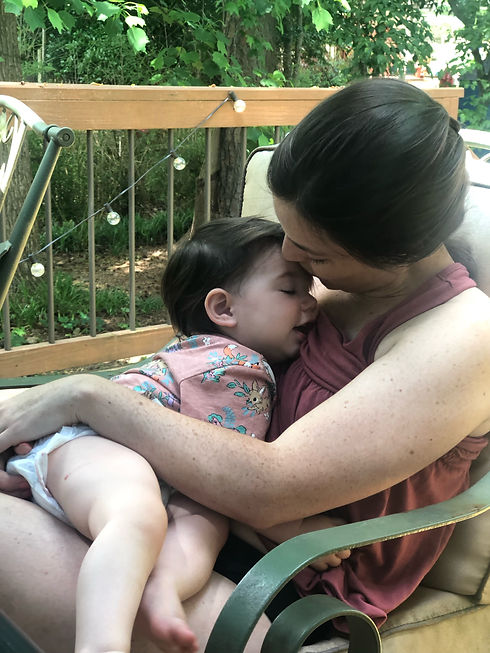SMALL BITES FEEDING THERAPY
ALL ABOUT SMALL BITES FEEDING THERAPY
I have always had a passion for working with small children. This is what in large part led me to a career in occupational therapy. Over the past 7 years I have been amazed by the rate of progress that is possible when you start working on feed therapy skills while a child is young. Witnessing how how transformative small feeding changes can be on the rest of a child's life captured my heart from the start. The sensory, fine motor, bilateral coordination, socioemotional, nutritional, and psychological benefits of being able to confidently feed yourself alongside your peers are remarkable.
I firmly believe that all children will eat who can eat. If they are not eating it is our job to figure out why and help them to do so. Once this is accomplished the rewards multiply beyond what you could have dreamed possible.

Masters of Science in Occupational Therapy
Beckman Oral Motor Certified
(how to eat physically)
Sequential Oral Sensory Certified
(how to eat psychologically and sensorially)
DIR Floortime certified
(How to eat and engage socially for all neurotypes)
Qualifications
Amanda's story
When Amanda's daughter Nora was just a few months old everything was a challenge and it was clear something was wrong. At 3 months she was referred to a neurologist, and by 9 months she was diagnosed with Cerebral Palsy (brain damage from lack of oxygen during the birth process). It was incredibly eye opening to walk the journey of a parent trying desperately to help their child in an almost impossible to navigate system. One lactation consultant sent her home with 12 pages of exercises to perform on her newborn multiple times a day. She knew the importance of home carry over, but this simply did not seem possible or like a manageable amount of work for the baby. Hearing all the well meaning professionals advice contradict was one of the hardest parts. If it was confusing for her, she could not even imagine how parents without a professional background in pediatric therapy must feel. Her first few young years felt filled to the brim with specialist appointments, PT, OT, feeding therapy, tongue tie release, months of extra lactation consultant support, and a year of wearing braces on her feet. Amanda is over the moon to report that Nora is doing better than anyone could have imagined. You would never know the challenges she overcame early on. To most people she appears a perfectly happy and typical tot. This is the miracle of early intervention. With the right routine based changes set in motion early on, the brain and body can often heal themselves.

